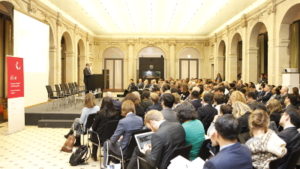
The German G20 presidency will take place in difficult economic times. The outlook for the world economy remains weak: The IMF predicts in its World Economic Outlook that global growth will slow to 3.1 percent in 2016 and rise slowly in 2017. Trade growth has also slowed to annually 3 percent. Only half the growth rate before the financial crisis. The benefits of free trade and globalization are increasingly being questioned. Rising inequalities, and challenges of migration have led to populist and nationalist tendencies in many countries. The G20 summit in Hamburg in July 2017 needs to give a clear signal in favor of globalization and free trade.




